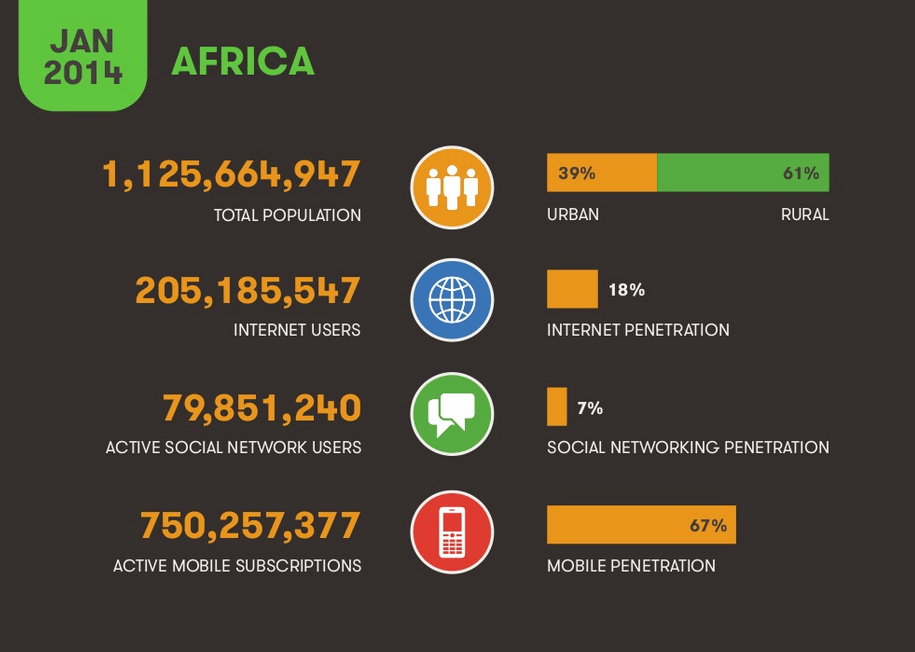Africa’s Untapped Potential: Retail Advantages of Capturing Consumer Data
Big Data is still a concept that retailers are uncomfortable with. The advantages of capturing consumer data are widely circulated but retailers remain cautious over the implications for customer privacy and how this can affect loyalty to a brand. The wealth of data that can be generated also poses a problem and often retailers are unsure of what to do with it or do not utilise it properly. How they analyse it is key, as the insights that can be drawn are central to how retailers inform future business strategy.

At Studio 14, we have created our very own data-capturing application called Copdat. We allow retailers to seamlessly collect data from their consumers in real time at events and exhibitions by accessing the app on a tablet device. Retailers can then have data sets for separate events all in one place and analyse data through the use of our reporting suite. The success of events can be compared in order to flag up issues or improve future conduct. The application allows retailers to interact with consumers through automated emails and text messages, culminating in key follow-up communication. But what are the key advantages of data collection for retailers?
We’ve pinpointed the lack of valid consumer data in Africa and recognise the incredible potential that could be generated when data is collected effectively from an emerging consumer class. Consumer driven markets are predicted to grow in Africa by up to $400 billion by 2020 and you can tap into these surging retail markets by collecting and using consumer data through Copdat. Traditionally there has been a lack of consumer driven data in Africa, but African consumers are quickly becoming brand conscious and wanting modern shopping experiences, as much of Africa has been limited to cheaper, poor quality products in the past.
There is a marked increase in digital usage in Africa, as Internet options become more affordable, this opens up the online marketplace to African consumers. The African market is so vast and there are so many opportunities to gather consumer data and create location specific insights. Rather than seeing the African market as homogenous, data collection through a tool like Copdat, allows retailers to see distinct and different consumer behaviours in several areas of the continent. This allows retailers to localize products and cater for specific markets. Current research into the African retail market shows that brand loyalty is very high. Collecting data through Copdat allows retailers to target specific demographics through content marketing and offer loyalty schemes and incentives to build trust and reward loyal customers.

Data helps to build a picture of consumers; their purchase patterns, loyalty, customer behaviour and the performance of certain retail stores. How the data is collected can make a big difference to how comfortable consumers are when they give it away and if they allow it to be collected. If data is collected in a one-to-one scenario using an app, retailers can build a relationship with a customer and exchange information. Capturing data through Copdat means data can easily be analysed opening up multi communication channels and allowing a Big Data view. If data is being captured online then an incentive can be given for information, such a prize or subscription to email newsletters. Making it worth the customer’s while is important.
If you have identified certain inefficiencies in your business or problems that you want to solve, asking your consumers the right questions can help to rectify the situation and improve your strategy. By having data that points towards the reasoning behind certain consumer decisions, you can start to make more informed decisions with quantifiable and qualitative proof, instead of guessing what causes certain issues. Wasting time asking the wrong questions and gaining useless information wastes your time and the consumer’s and distracts you from building an effective model.
The rise of the African consumer is exponential and so is the need to harness consumer data and use it to inform retail decisions. Coupled with each other, a Big Data view of the African market will help retailers to capitalise on a surging market-place. Our solution uses intelligent procedures to help collect and analyse data in a simple way. Data can be collected anywhere and everywhere without the need for an Internet connection and consumer behaviours can be used to change business strategy for the better.

